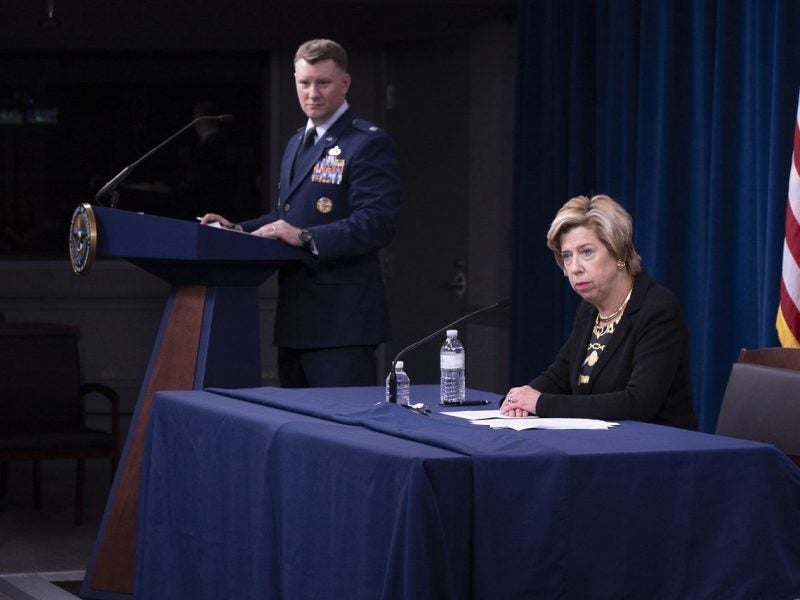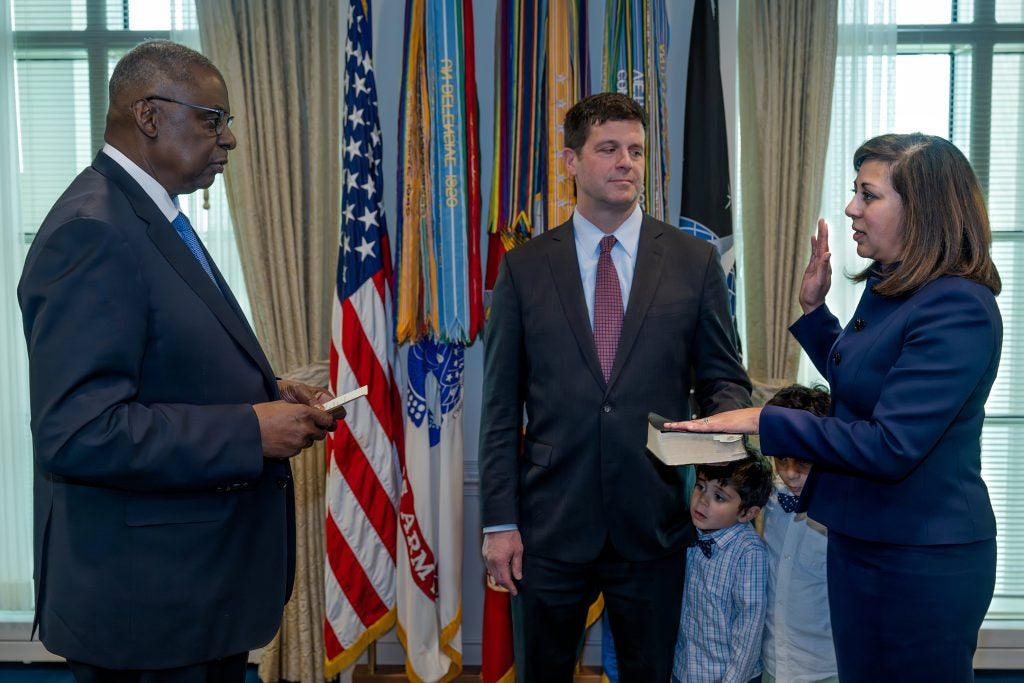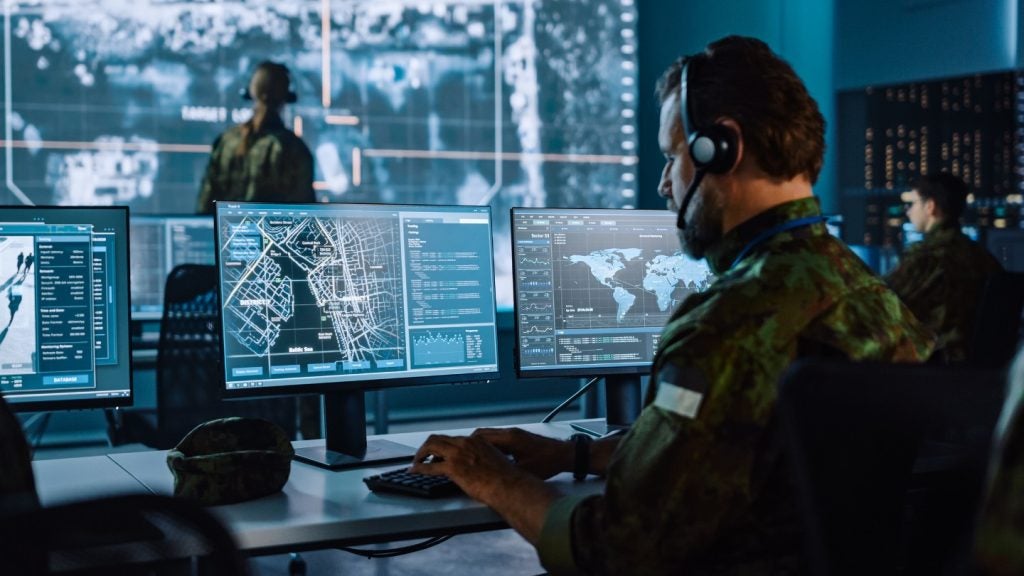
In a press briefing on Monday, the Department of Defence (DoD) signalled it will not challenge a planned merger between Raytheon and United Technologies (UTC).
When asked about the merger, DOD undersecretary for acquisition and sustainment, Ellen Lord, said: “We are working through that process right now, and what we would typically do, would put consent orders in and so forth if we have concerns. There are no major concerns that I know of right now.”
The planned company would generate around $74bn in sales, said Raytheon when it announced the plans in June 2019. Raytheon and UTC are set to complete the merger by the first half of 2020 if the US Government does not block the plans.
Lord explained the DoD’s role in mergers saying: “So we’ve established a process now, when we get a call or we hear in the media that a merger or acquisition is taking place, we go out with a request to all of the components and services about what business they have with each of the two companies and whether they see any problems with limiting competition where there’s just two of them.
“And then we partner with either the Department of Justice or the Federal Trade Commission to step through and see if there are any issues.”
How well do you really know your competitors?
Access the most comprehensive Company Profiles on the market, powered by GlobalData. Save hours of research. Gain competitive edge.

Thank you!
Your download email will arrive shortly
Not ready to buy yet? Download a free sample
We are confident about the unique quality of our Company Profiles. However, we want you to make the most beneficial decision for your business, so we offer a free sample that you can download by submitting the below form
By GlobalDataIf the merger is blocked the most likely reason would be if the deal could lead to a monopoly on a market. The US Government has in the past blocked mergers or required companies to divest parts of their business to prevent this.
In the case of Raytheon and UTC, the two companies’ portfolios are largely separate, however both operate in the communications and imaging sectors.
The merger, potentially worth $121bn, would make the new business one of the biggest defence contractors in the US through the combination of the companies’ military and commercial businesses.
Both companies’ boards of directors unanimously approved the merger. Shareholders in UTC will hold 57% of the shares, with Raytheon holding 43%.
When the merger was announced Raytheon chairman and CEO Tom Kennedy said: “Today is an exciting and transformational day for our companies and one that brings with it [a] tremendous opportunity for our future success.
“Raytheon Technologies will continue a legacy of innovation with an expanded aerospace and defence portfolio supported by the world’s most dedicated workforce.”
United Technologies chairman and CEO added: “The combination of United Technologies and Raytheon will define the future of aerospace and defence.”
“Our two companies have iconic brands that share a long history of innovation, customer focus and proven execution. By joining forces, we will have unsurpassed technology and expanded R&D capabilities that will allow us to invest through business cycles and address our customers’ highest priorities.”
Since 2015, there have been a number of mergers and consolidations among US defence contractors. In 2015 Lockheed Martin bought Sikorsky, the makers of Marine One, from UTC and in 2017 UTC bought aerospace systems company Rockwell Collins for $23bn.
When the merger was announced President Donald Trump told CNBC he was concerned about it, saying: “They’ve all merged in, so it’s hard to negotiate when you have two companies and sometimes you get one bit.”
United Technologies’ largest sectors include aerospace systems and building systems from ventilation to fire safety. As of 2017 the company employed around 205,000 staff.
Raytheon’s largest sectors include the design and manufacturing of missile systems, command and control systems, and imagining and sensor equipment. Raytheon employs over 64,000 employees across its five business divisions.








